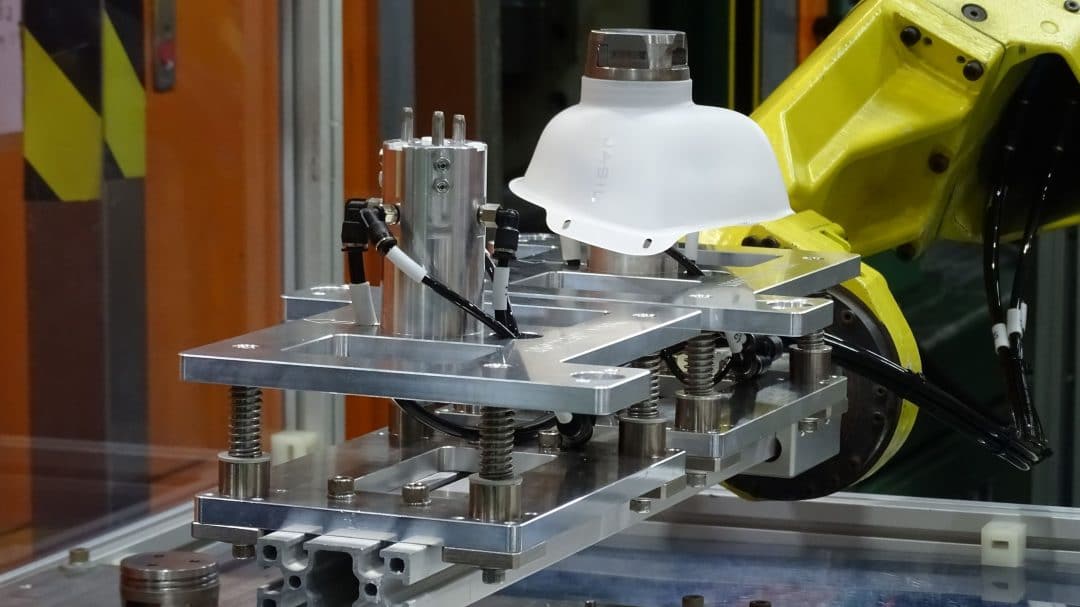MBA alumnus helps Jabil stand strong during COVID-19 pandemic
As the COVID-19 pandemic has changed business operations around the globe, Warrington alumni are leading the way and helping their companies innovate to meet demand. Courtney Ryan (BA ’91, MBA ’93) is playing an important role for Jabil, a manufacturing solutions provider. As Executive VP, Corporate Development and Chief of Staff at Jabil, Ryan has seen the supply chain impact for this global company and played an integral role in its response.
Learn more from Ryan about how Jabil has been impacted and how they’ve changed to better suit consumer needs.

Q: How has Jabil’s supply chain been impacted by COVID-19?
Ryan: “While stay-at-home orders and stricter border controls across Asia, Europe and the U.S. have challenged Jabil’s production and logistics, we have been able to rely on our global footprint, operational agility and network of 27,000 global suppliers to navigate disruptions effectively.
“Our suppliers, however, don’t necessarily have this luxury. Many of our smaller suppliers usually operate out of a single country or region, so they are more deeply impacted.
“We are in constant communication with our supply base and logistics partners to monitor these impacts and, as needed, identify alternative solutions. Supply chain disruptions like this, while challenging, are in fact the reason many of our customers turn to us. Jabil’s manufacturing solutions are built to overcome these challenges and maintain business continuity.”
Q: How much has Jabil felt the supply chain challenges in the healthcare industry?
Ryan: “The sudden and extraordinary demand for personal protective equipment, diagnostics and treatment products caught everyone by surprise. Having a wide, previously established network of suppliers is invaluable at a time like this. We have marshalled all of Jabil’s relationships, resources and scale to keep our existing healthcare products flowing, while helping customers meet the urgent needs stemming from the COVID-19 outbreak.
“For manufacturers, the pandemic has also stressed another critical supply chain: people safety. We need to make sure our people who are showing up to the building each day to make these essential products are properly protected, with hand sanitizer, shields and facial masks, for example. To ensure sufficient inventory and reduce strain on the global supply chain, we started making our own facial masks in-house beginning in January.”
Q: How quickly can the supply chain processes be expedited in a time like this where products are needed quicker than usual?
Ryan: “I have been so impressed with our response time and ramp speed these past few months. For example, there has been tremendous demand for ventilator production. We serve a number of the largest HC brands in the world, many of which produce ventilators, some of which we support by providing ventilator accessories to PCBA’s to the Ventilators itself. Volumes are definitely higher than the norm, not only in Ventilators, but in many adjacent products such as monitors, infusion, feeding, diabetes, beds and diagnostic devices.
“We conducted an extensive search of our customers and partners’ stock and leaned heavily on our supply chain relationships and experience to fulfill these needs, enabling faster production. Leveraging resources across our multiple business divisions has also allowed us to source the components needed for these essential machines for hospitals and their patients.
“As another example, we have collaborated with a customer on developing a reusable, sterilizable N95 mask. Using additive manufacturing, we will go from prototyping to producing over 30,000 masks a day in less than one month.”
Q: How stressed does the supply chain become when some supplies are coming from countries who have been significantly impacted by COVID-19?
Ryan: “Understandably, regions where the outbreak has become the most serious tend to be the areas that are also implementing the strictest regulations to prevent COVID-19 from spreading. The top priority of governments and regulatory agencies is to keep their people safe, a value that Jabil whole-heartedly agrees with and supports.
“However, these restrictions affect many logistical aspects of supply chain, such as transportation. For example, many cities and regions in China are still impacted with transportation/logistics restrictions.
“We are constantly working to figure out ways to speed up production while still respecting regulations and keeping our employees safe.”
Q: When the current public health situation slows down, what do you expect to be some of the important lessons that come out of this from the supply chain perspective?
Ryan: “I believe the COVID-19 crisis will accelerate two trends we’ve seen building for some time. Boards of Directors will push their management teams to leverage a distributed manufacturing footprint. I use the term “distributed manufacturing” to mean manufacturing within a given region for that region’s consumption. Some people also call this nearshoring. This is a trend that has been building for some time as labor rates in certain regions of the world (like China) have escalated. For example, over the last five years, manufacturing in Mexico has become more favorable than China for some products consumed in the United States.
“In addition, I believe the COVID-19 crisis will drive Boards to prioritize risk reduction alongside cost reduction in their manufacturing strategies. At a tactical level, this could mean manufacturers need to ensure they have multiple sources of supply for each component of a product. It could also mean qualifying agile process technologies like 3D printing for many mechanical parts.
“On top of the above, one of the key takeaways for us has been the vitality of a collaboration infrastructure. The modern world has never experienced a crisis of this magnitude and scale. These unprecedented times call for rising together in our collaboration efforts. Already, we have seen some remarkable successes as a direct result of teamwork across the various divisions of Jabil as well as with our customers, healthcare professionals and governments. Interestingly, the crisis has driven rapid and nearly ubiquitous adoption of collaboration tools like Microsoft Teams and Zoom across enterprises, educational systems and governments.”
Q: How did your time as an MBA student at the Warrington College of Business prepare you to handle these challenges in your job.
Ryan: “As most graduates can attest, your professional career is sure to be full of challenges, changes and surprises. In addition, most successful professional careers are rooted in the ability to cultivate great relationships with people. Warrington has a perfect balance of extremely challenging educational rigor and the opportunity to forge great relationships with people from all backgrounds, cultures and geographies.”




